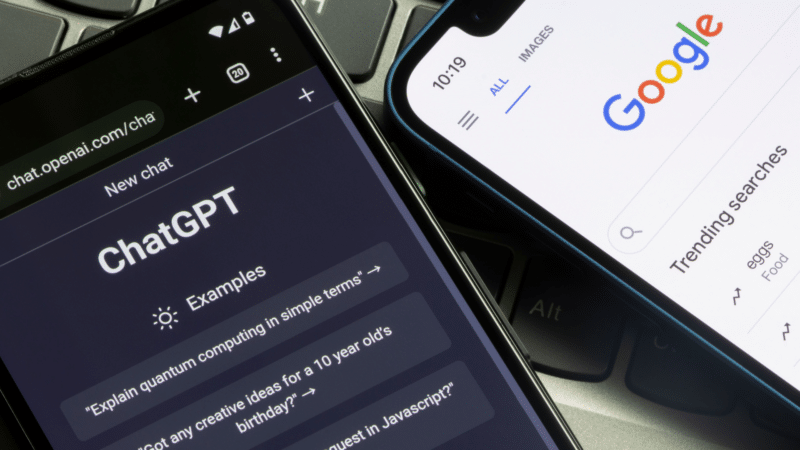With the emergence of conversational AI models like ChatGPT, there is an increasingly loud debate about how the future of search and information retrieval could evolve.
Traditional search engines like Google have long been the primary method for accessing information on the web. Now, advanced AI models offer a new approach to finding and retrieving information.
Let’s discuss the potential of ChatGPT and other AI models to disrupt search, drawing comparisons to traditional search engines and exploring their future role in the domain of digital marketing and beyond.
The traditional search engine model
Google has led search for over 20 years and still controls about 90% of the global search market. Traditional search engines work using a web index-based model, crawling vast pages of information on the web and ranking their results according to relevance and authority.
This model is highly effective for users searching for specific information, research or products. It makes vast resources accessible in seconds with just a few keywords.
Some of the key features of traditional search engines are the following:
Keyword-based searching: Users input keywords and the search engine returns a list of relevant web pages.
Page ranking: Algorithms rank pages based on relevance, user engagement and other factors.
Ad integration: Sponsored results and advertisements are integrated into search results, forming a significant revenue stream.
Wide data access: Search engines index a vast array of websites, providing comprehensive access to information across the web.
The rise of conversational AI: ChatGPT
Conversational AI, such as ChatGPT by OpenAI, has blurred the lines between man and machine, moving toward interactive, even subtle, information retrieval.
While the classical model of a search engine returns a list of results, ChatGPT engages the user in conversation, providing more personalized and context-aware responses.
These AI models, trained with vast amounts of data, can understand and generate text that closely mimics human conversation, making interactions feel natural and conversational.
ChatGPT brings unique benefits to the table, transforming the way we access and engage with information:
Natural language understanding: ChatGPT excels at understanding and processing natural language queries, allowing users to ask questions in a conversational manner without needing to think in terms of keywords.
Contextual awareness: The model retains context over multiple interactions, enabling more coherent and relevant responses during extended conversations.
Personalization: By understanding user preferences and previous interactions, ChatGPT can tailor responses to individual needs.
Real-time interaction: Users can receive immediate feedback and clarification, enhancing the user experience.
Comparing ChatGPT and traditional search engines
Search precision and depth
Traditional search engines are very good at being precise and wide, returning many different results.
Google’s algorithms grasp the precise meaning of keywords and determine the relevancy of top-ranking results based on many signals.
Contrast this with ChatGPT, which essentially contains richness through interaction.
It won’t provide you with an avalanche of results like a keyword search, but it will give you detailed descriptions, summaries and recommendations on specific queries. It’s a deep tool for a complex query where sense and context come into play.
User experience
The user experience differs significantly between the two models. Traditional search engines provide a straightforward list of links that users can explore.
This approach is efficient for those who know what they are looking for and prefer to browse multiple sources.
Conversational AI offers a more interactive and engaging experience. Users can ask follow-up questions and seek clarifications in real time, making the search process feel more like a dialogue with a knowledgeable assistant.
This can be particularly advantageous for users seeking comprehensive understanding without needing to navigate multiple web pages.
Limitations and challenges
Despite its advantages, ChatGPT has limitations. One significant challenge is the potential for generating inaccurate or misleading information.
